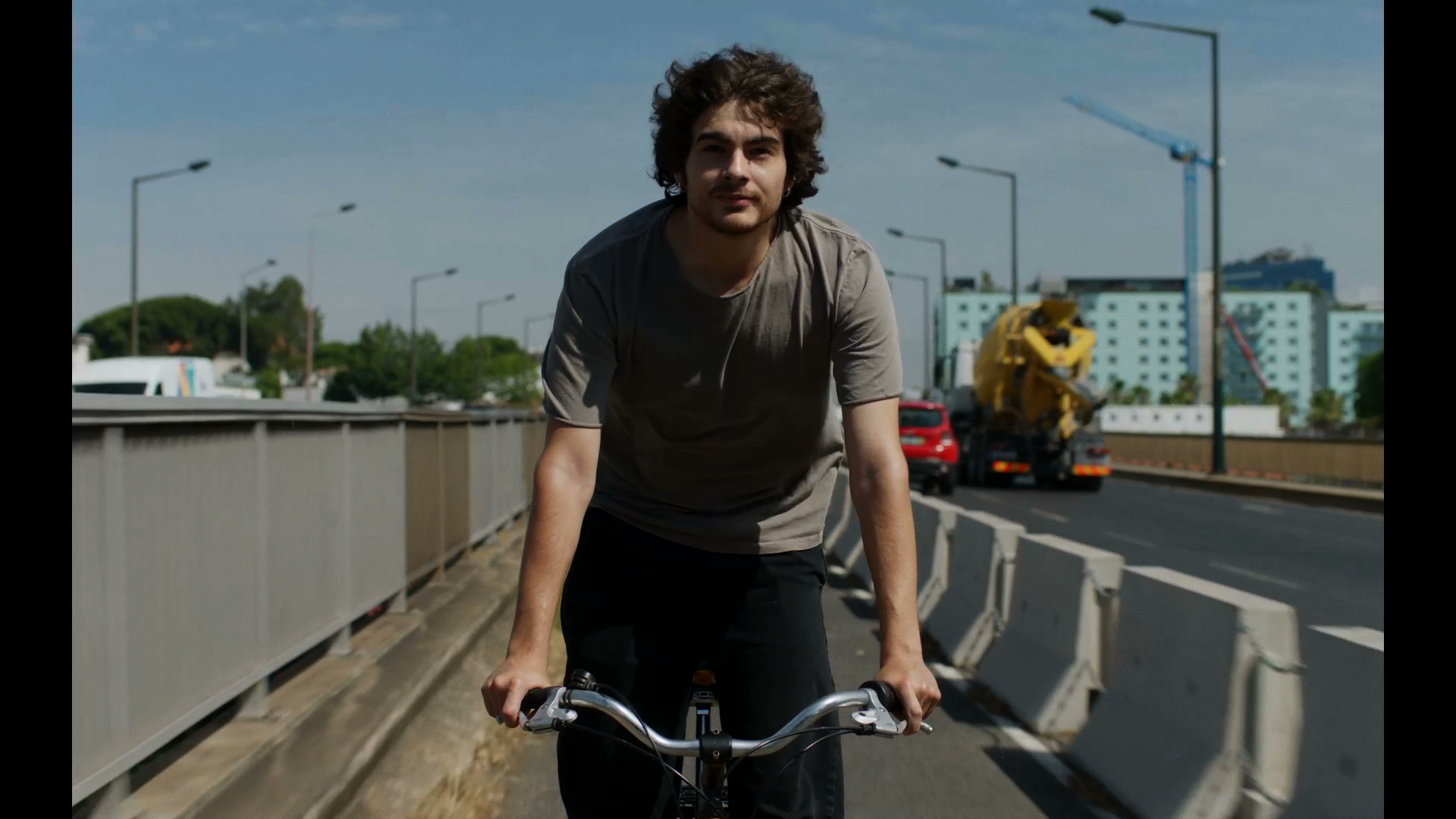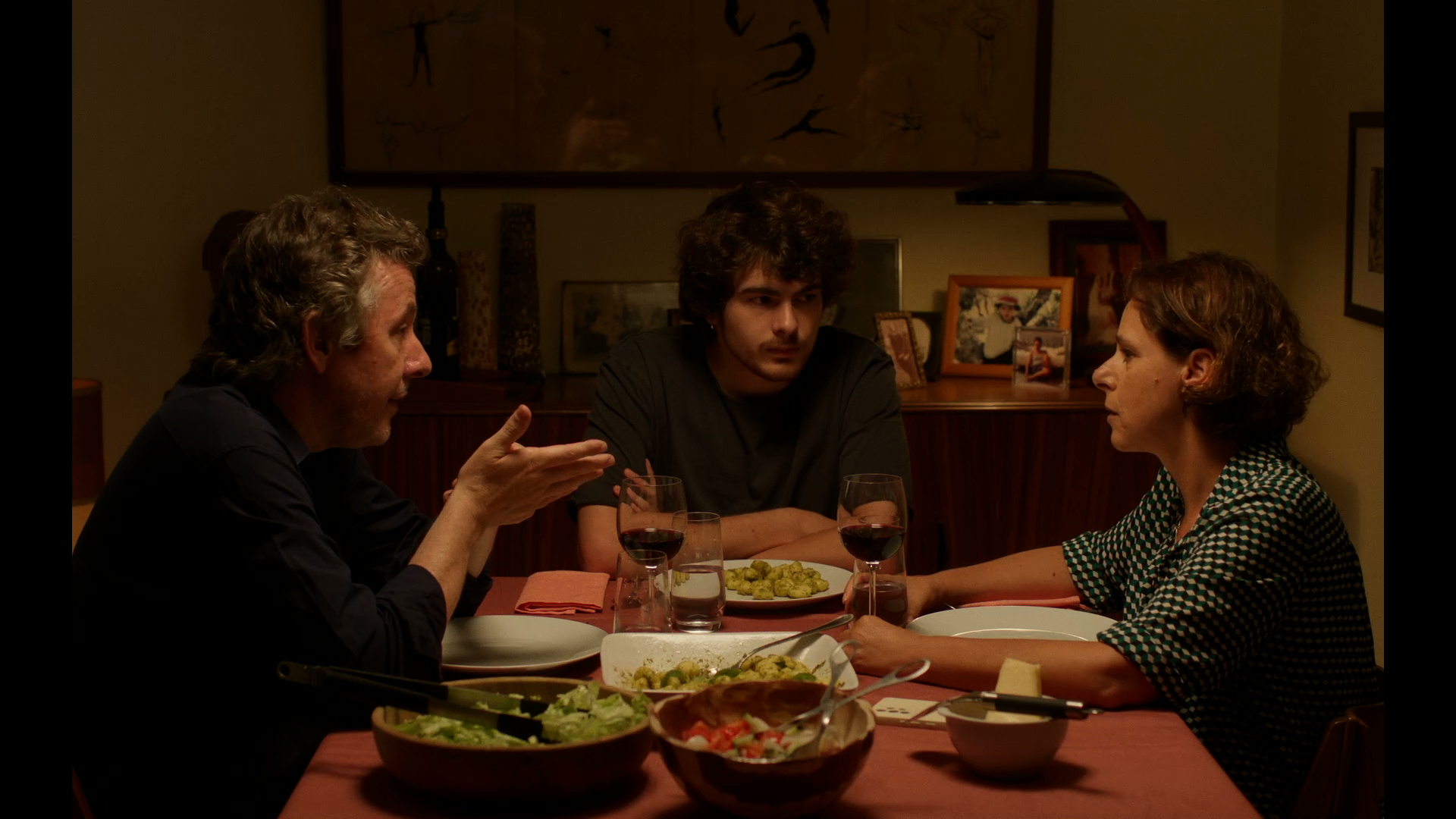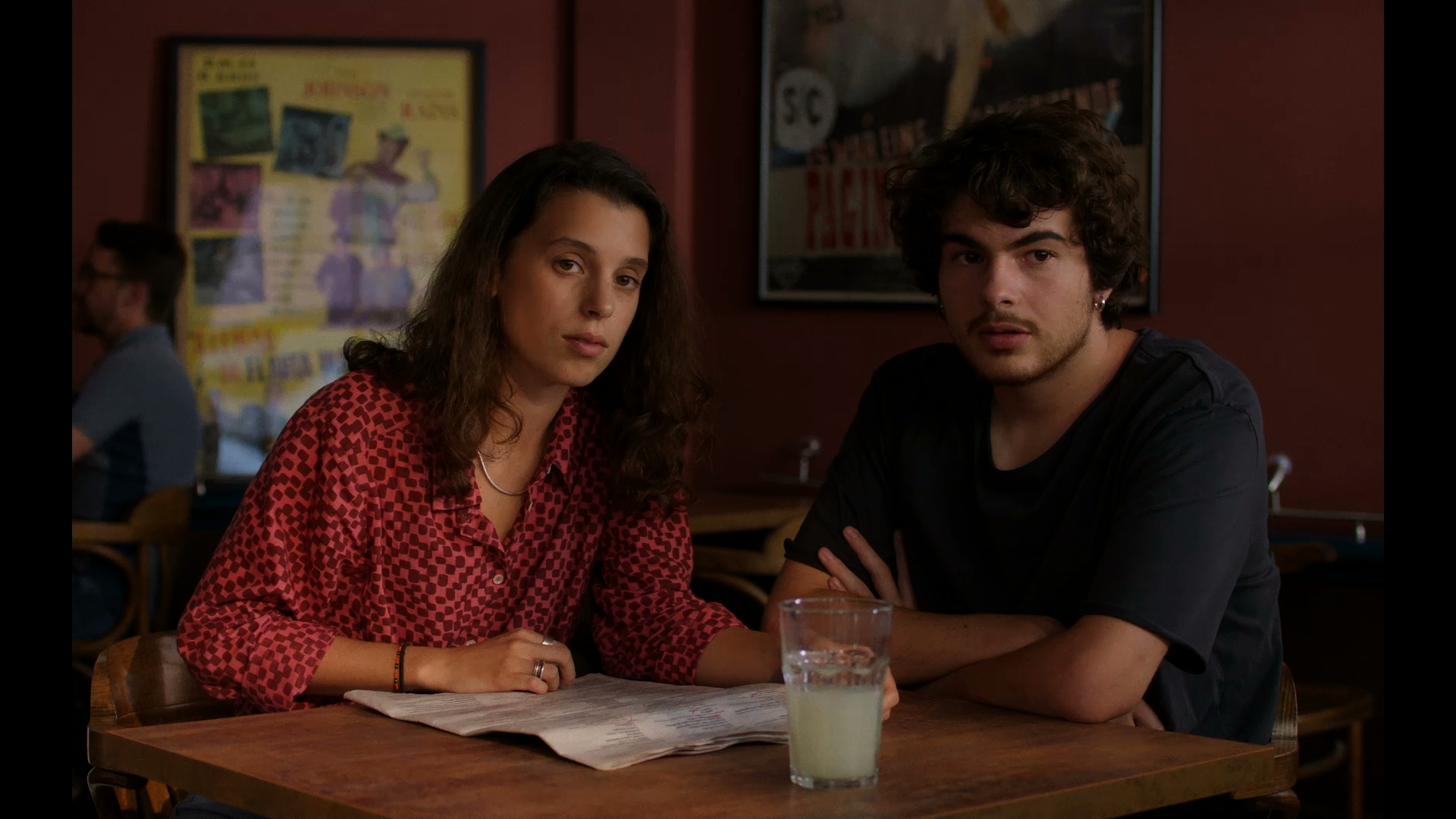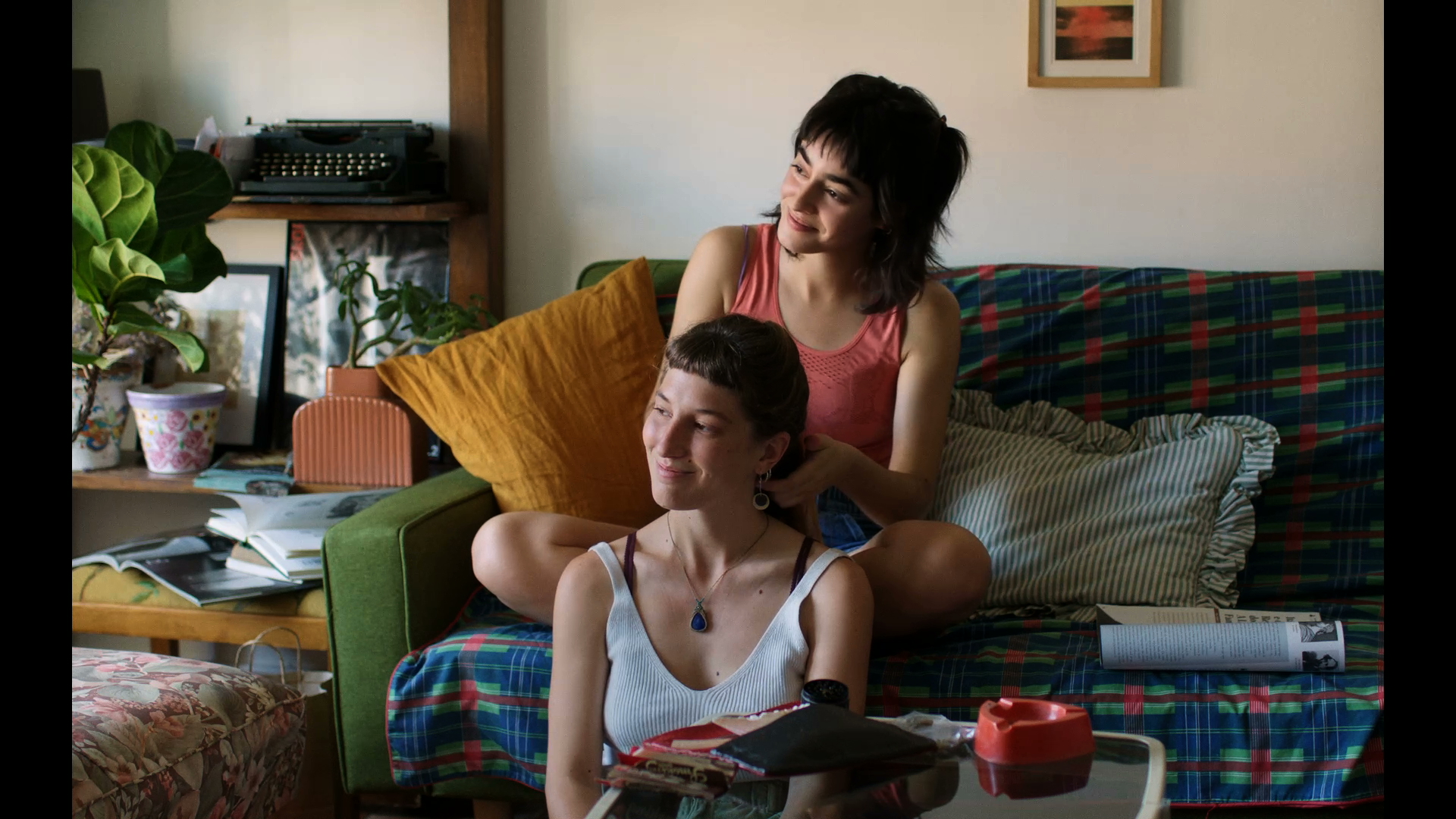Turning twenty-four isn’t much of a celebration, Nicolau realizes right on his birthday. He’s still living with his parents, dreaming of a music career that never quite takes off, and can’t get his ex-girlfriend out of his head.
A year after their breakup, he’s still drifting aimlessly through Lisbon. But sometimes, when spring is in the air and you finally land a job at a stationery shop, life slowly begins to stir again.
A Vida Luminosa is director João Rosas’ first feature film, but we actually know Nicolau already. Since 2012, Rosas has followed the same actor through various short films where we watched Nicolau grow up. Now he’s become an adult, but still feels a bit lost.
That sounds heavy, but A Vida Luminosa is anything but. On the contrary: it’s a warm, light film full of humor and gentle irony. Instead of wallowing in how difficult life is, Rosas chooses to show how beautiful uncertainty can be—and how unexpectedly life can unfold.
And so Nicolau wanders through his quarter-life crisis with disarming openness. He counts bicycles for the city council (a job so relaxed you’d almost be jealous), moves into a shared apartment full of interesting women, and discovers that Lisbon is brimming with unexpected opportunities. Especially when you keep your heart open to new loves—even when you still see shadows of your previous relationship everywhere.
What makes the film so special is that you really feel like you’re walking through the city alongside Nicolau. Director Rosas and his cinematographer don’t show us tourist Lisbon, but the real city where ordinary people live, work, and love. Cafés where light falls warmly on faces, bookshops where you might meet someone who could change your life, streets where every corner might bring a new encounter.
Francisco Melo plays Nicolau with an openness that lets everything he sees and hears seep into him. He’s the type of person who lets himself be shaped by the people around him—especially by the women in his life, who all have much more focus than he does. But that’s exactly what makes him so relatable: who hasn’t felt this lost at some point?
That Rosas has followed the same character for twelve years gives A Vida Luminosa something unique. It feels like returning to an old friend, but one who’s finally trying to get his life together.
A Vida Luminosa proves you don’t need complicated stories to create something beautiful about growing up. Sometimes it’s enough to simply show how someone learns to say yes to life again—and to all the surprises it brings.








